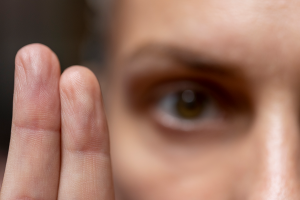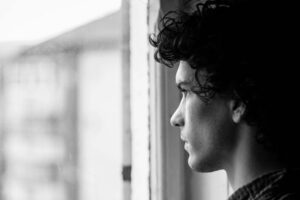For many, postpartum depression is often associated with the emotional challenges following childbirth. However, the loss of a pregnancy through miscarriage or stillbirth can also trigger postpartum depression. While the term “postpartum” technically refers to the period following birth, emotional and psychological struggles such as depression can still emerge after a pregnancy loss. This experience can be deeply complex, combining grief, hormonal shifts, and psychological distress.
A miscarriage can be an incredibly painful experience, and it can affect a person both physically and emotionally. The intense sadness and feelings of grief after a miscarriage may develop into depression, including symptoms that closely resemble postpartum depression. In some cases, the emotional toll of the loss, coupled with hormonal changes, can lead to clinical depression that should be taken seriously.
Why Does Postpartum Depression Happen?
During pregnancy, your body undergoes significant hormonal changes, especially involving estrogen and progesterone. After a miscarriage, these hormone levels drop dramatically, which can contribute to feelings of sadness, irritability, and depression. These shifts are similar to those that happen after childbirth, which is why postpartum depression can occur even after a loss. Miscarriage is not just the loss of a pregnancy; it’s the loss of a future you may have envisioned with your baby. The deep emotional pain of losing a child at any stage of pregnancy can overwhelm your ability to cope. The sadness and grief can sometimes morph into depression, particularly if you’re struggling to process the loss.
If you have a personal or family history of depression, anxiety, or other mental health conditions, you may be more vulnerable to experiencing postpartum depression after a miscarriage. Your previous mental health struggles can be triggered or worsened by the physical and emotional challenges of pregnancy loss. Pregnancy loss can be an isolating experience, especially if friends and family do not fully understand or acknowledge the emotional impact of miscarriage. This lack of support or feelings of loneliness can heighten depression and complicate your grieving process.
Some people who experience a miscarriage may wrestle with feelings of self-blame, guilt, or inadequacy. These emotions can exacerbate depressive symptoms, even if the miscarriage was beyond their control. This type of thinking, often irrational, can feed into the cycle of depression.
The symptoms of postpartum depression following a miscarriage are similar to those experienced by new mothers after childbirth.
Symptoms of Postpartum Depression
- Intense sadness or feelings of hopelessness
- Difficulty bonding with loved ones or feeling detached
- Loss of interest in activities you once enjoyed
- Irritability or frustration
- Difficulty sleeping (even when tired) or oversleeping
- Changes in appetite (eating too much or too little)
- Fatigue or lack of energy
- Difficulty concentrating
- Feelings of worthlessness, guilt, or shame
- Intrusive thoughts about death or suicide
Seeking Help for Postpartum Depression
If you experience any of these symptoms for more than two weeks after your miscarriage, it’s important to seek help from a healthcare provider, as this may indicate postpartum depression or another form of clinical depression. Therapists at B’ham Anxiety & Trauma Therapy are ready to work with you to overcome your postpartum depression. You are not alone. Contact us to learn more or book an appointment.







